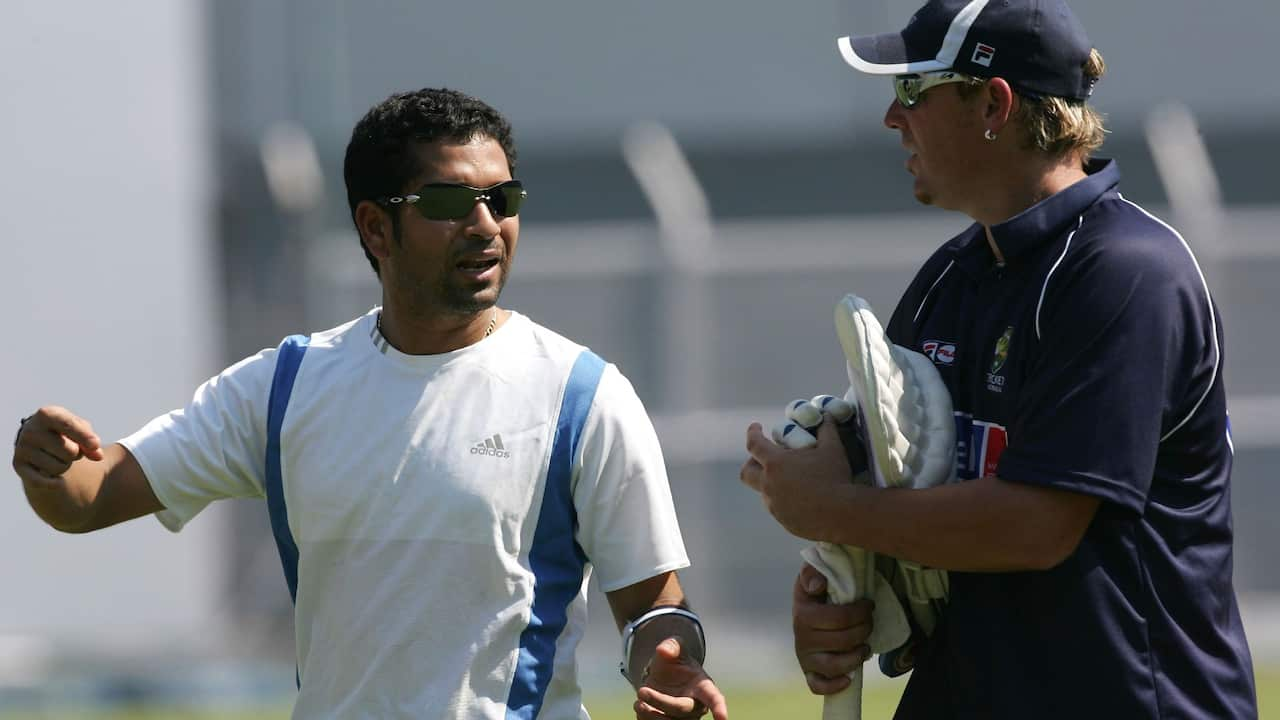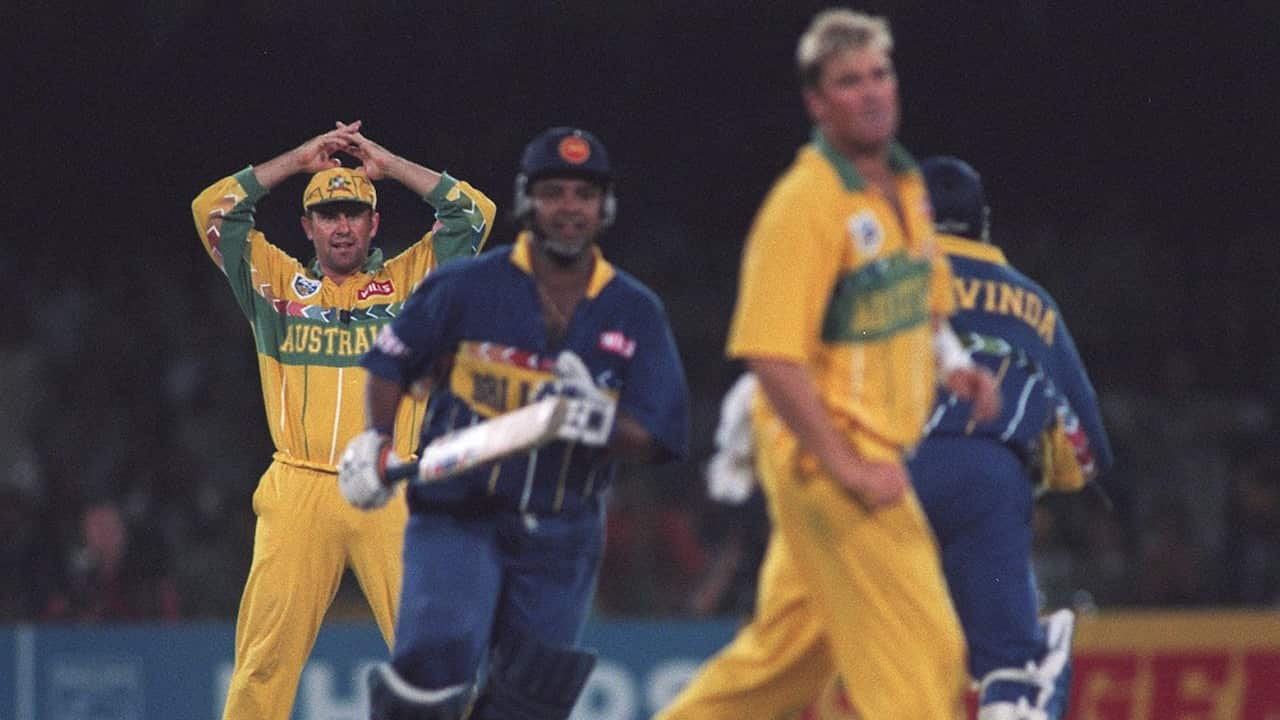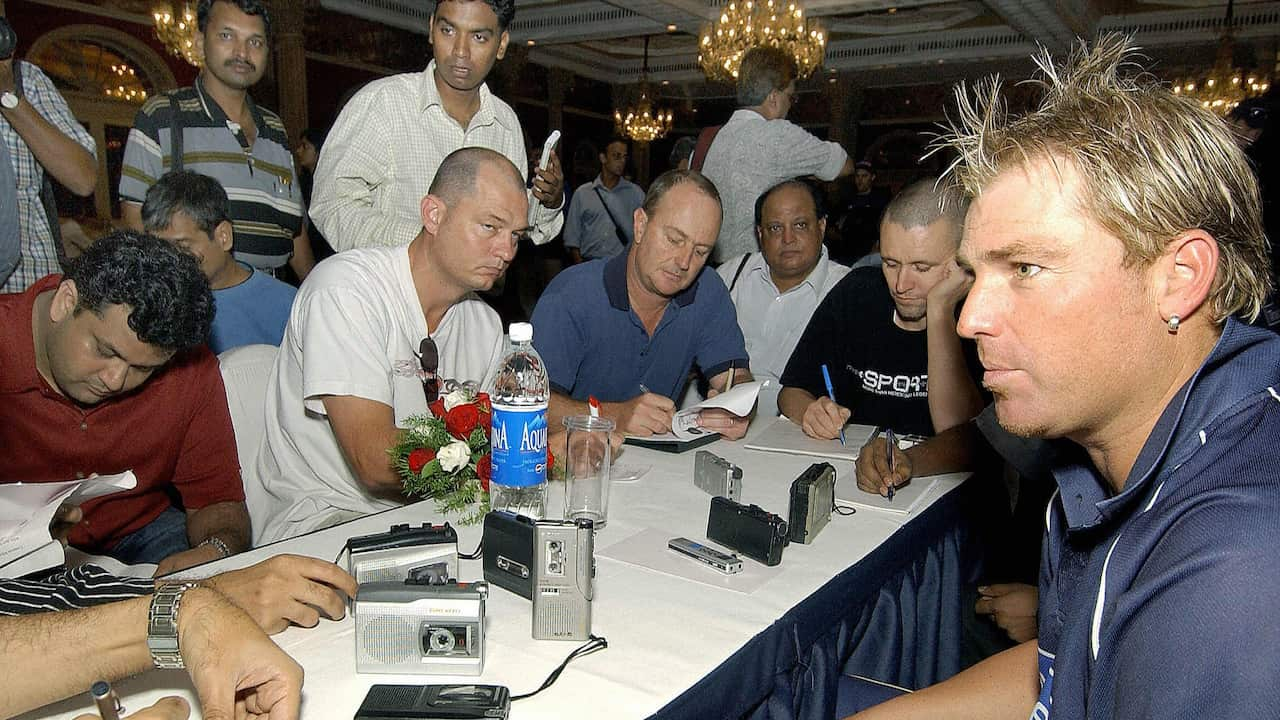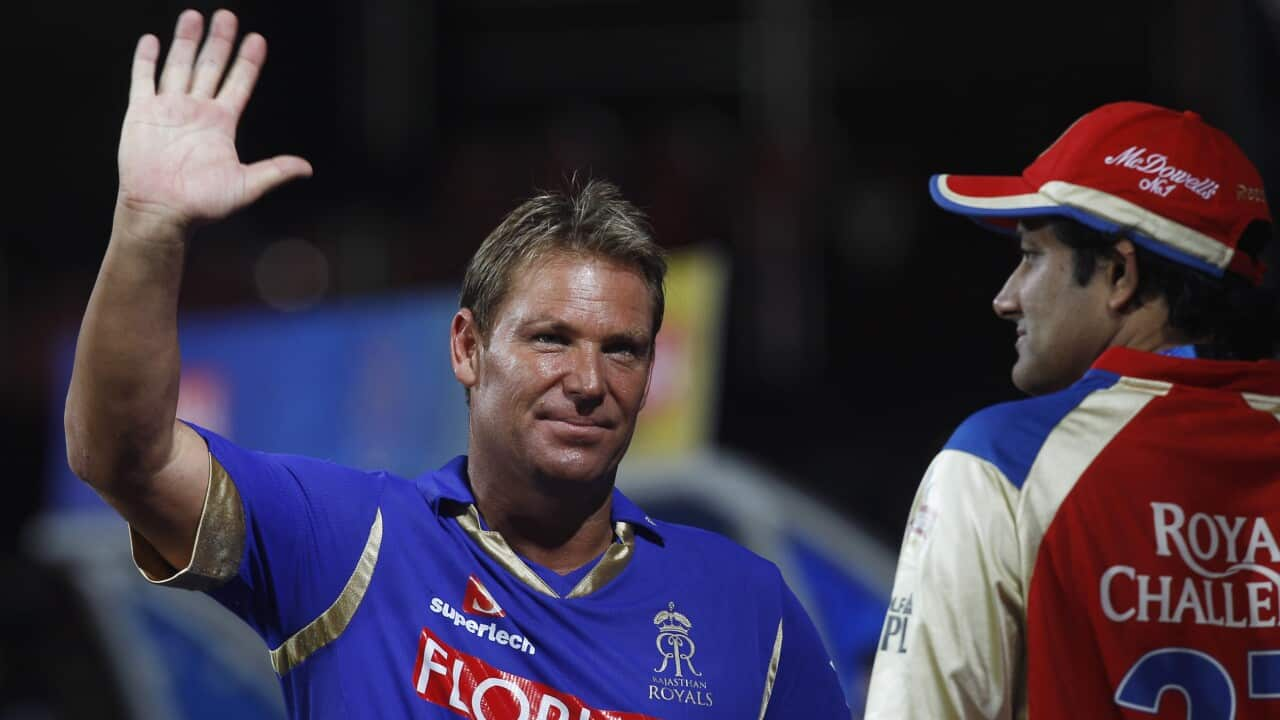Highlights
- Sri Lankan cricket legends Arjuna Ranatunga and Tillakaratne Dilshan are among those who have lauded Shane Warne for his contributions both on and off the pitch
- Warne’s track record on the subcontinent under the microscope
- Nepal to host multi-national tournament in Warne’s honour in April
Cricket fans of the Indian subcontinent are well aware of Shane Warne’s never-say-die attitude.
Even during the India vs Australia series of 1998, when Sachin Tendulkar repeatedly smashed him around the ground, fans recall Warne’s unwavering dedication to aggressive spin bowling.
The Indian maestro tweeted that he was “shocked, stunned & miserable” at his fierce rival’s passing.
You always had a special place for India & Indians had a special place for you.
Tendulkar also wrote that he “will always treasure our on field duels & off field banter”, and few fans on the subcontinent would question Warne's—and his Australian teammates'—commitment to winning at all costs.

'A tough guy who always wanted to win’
Arjuna Ranatunga, the World Cup winning captain of Sri Lanka, also lauded Warne’s fighting spirit.
“As a cricketer on the field, I would say he was a very hard guy to cope with. He never allowed anyone to take control, he always tried to control [the situation] himself,” he told SBS Sinhala.
The Ranatunga-led Sri Lankan team famously lifted the World Cup trophy by beating Australia in the 1996 final, a game in which Warne conceded 58 runs without taking a wicket.
Talking about his own batting, Ranatunga said that he was relatively successful against Warne, mostly because he was left-handed batsman, an “advantage” against a right-arm leg spinner.

But Ranatunga also had special praise for Warne for his off-field behaviour, describing him as a “very nice person”.
He said that in one of Sri Lanka’s darkest hours, the Boxing Day tsunami of 2004, Warne was on hand to help.
“At the time of the tsunami, he came and helped to rebuild Galle stadium,” said Ranataunga, referring to Warne’s fundraising efforts.
In the aftermath of the tsunami, which caused massive human and infrastructure losses, Warne famously walked around the disaster zone providing cricket balls, supplies and just a glimmer of hope to devastated locals.
Since then, Warne has been embraced by the cricket-mad island nation.
“[Warne was] a tough guy who always played hard for his country, who always wanted to see his country winning,” said Ranatunga.
Tillakaratne Dilshan, another former captain of the Sri Lankan cricket team, currently resides in Melbourne.
Dilshan told SBS Malayalam that Warne’s death is a huge loss to the cricketing world, including the many Sri Lankan fans who loved him.
He was not just a good cricketer, but a good human being as well.
Dilshan said Warne’s secret weapon was being able to quickly identify and target the weakness of a batsman.
Dilshan recalled the 2004 Australia vs Sri Lanka series, where he was successful against Warne’s bowling in the first test, “but he then came back and got me out on a few occasions after that”.

Who was the greatest?
Indian cricketing icon Sunil Gavaskar created a stir when, a day after Warne’s sudden death in Thailand, he commented that the Australian was not the greatest spinner of all time.
The Indian great was criticised for the untimely and insensitive nature of the comments, and later apologised.
However, Gavaskar’s remarks re-ignited the debate on who was the best spinner in subcontinental conditions - especially given Warne, Sri Lanka’s Muttiah Muralitharan and India’s Anil Kumble all played during the same era.
“Warnie”, as the Australian was popularly known, was able to bamboozle batsmen over and over again. But when it came to Indian batsmen, his record tells a different story.
Warne’s impressive overall bowling average of 25.41 nearly doubles to 47.18 when he played against the Indian team.
In contrast, Muralitharan, who holds the record of most wickets in test cricket, had an overall bowling average of 22.72 and averaged 32.61 against India.
The Sri Lankan took an astonishing 800 wickets in only 133 matches. Warne stands next with 708 wickets in 145 matches.
Most Indian pitches are relatively slow and are considered spin-friendly.
At home, India's Kumble took 350 wickets at an average of 24.88, and was a key player to help the team to achieve many series victories. But overall, his tally of 619 wickets fell short of Warne’s record.
While Warne played at a time when the subcontinent had its own match-winning spin bowlers, the legendary Australian spinner enjoyed huge success elsewhere.
In the Ashes series against England, Warne sits right at the top for wickets taken with 195 at an average of 23.25. His phenomenal performance in the 2005 Ashes series, taking 40 wickets at an average of 19.92, signalled a resurgence late in his career.
Though his record was not impressive against India, he had relative success in Sri Lanka, where he took 48 wickets at an average of just over 20.
'Lucky to have played under his guidance'
Post-retirement, Warne took up a captain position with Rajasthan Royals in the Indian Premier League, and helped the team to become inaugural winner of the competition.
His IPL connections, as a club-based mentor and commentator, continued to make him a star in India even after his retirement.
Current Indian cricket players Ravindra Jadeja and Kuldeep Yadav have openly discussed Warne’s influence on their career.
Former Royals player Dishant Yagnik, who debuted in the IPL under Warne's captaincy, told SBS Gujarati, “The commitment towards the game, the fighting spirit, the 'win from anywhere' situation and the never say die attitude, these types of words belong to Shane Warne only.”
Dinesh Salunkhe, another who played under Warne at the Royals, said it was a dream to play under his "hero".
"I consider myself lucky to have played under his guidance. I am very shattered to know the sad news," he said, adding that he had remained in contact with Warne, who would ask about his family's wellbeing.

'An inspiration to us’
Warne’s huge following extends to Nepal, a Himalayan nation where cricket is growing increasingly popular.
In April, the country is holding a multi-national club-level cricket competition in the spin king’s memory.
Aamir Akhtar, a former Nepali national cricketer who is organising this event, told SBS Nepali that while he had never met Warne, he was a huge fan.
He was such an inspiration to us and we want to show our love to him.
Clubs from Nepal, India, Bangladesh and Malaysia will participate in the competition that will be held in Bhairahawa, a city in Western Nepal.
The state memorial for Shane Warne will be held on 30 March at Melbourne Cricket Ground.
